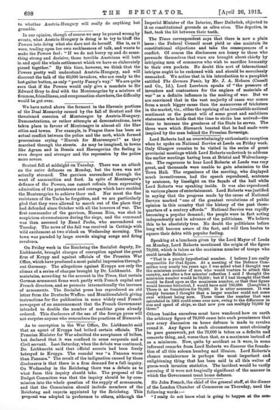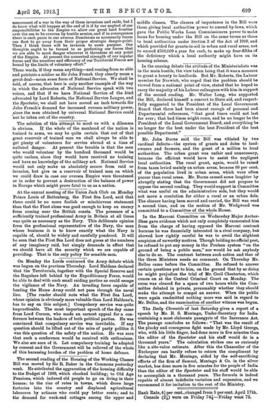Sir John French, the chief of the general staff, at
the dinner of the London Chamber of Commerce on Thursday, used the following words :—
" I really do not know what is going to happen at the coin'. mencement of a war in the way of these invasions and raids, but I do know what will happen at the end of it if by our neglect of our responsibilities to the Empire we allow our great land frontier over the sea to be overrun by hostile armies, and if in consequence them o is such panic in our oversea Dominions as necessarily forces our fleet to go away from their proper strategic danger-point. Then I think there will be invasion to some purpose. Our thoughts ought to be turned to so perfectinc, our forces that we are able to meet danger wherever it threatens at any point of the Empire. At present the numerical strength of our regular forces and the numbers and efficiency of our Territorial Forces are bound by the limits of voluntary effort."
These words, if they mean anything—and coming from so able and patriotic a soldier as Sir John French they clearly mean a great deal—mean some form of National Service. We shall be told, of course, that here is only another example of the way in which the advocates of National Service speak with two voices, and that if we have National Service of the kind advocated by Lord Roberts, the National Service League, and the Spectator, we shall not have moved an inch towards Sir John French's demand for increased oversea military power, since the men obtained by universal National Service could not be taken out of the country.



























































 Previous page
Previous page